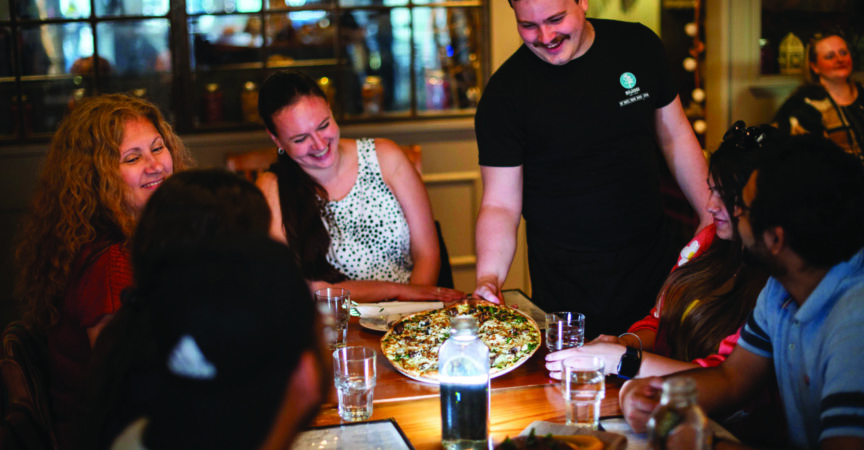The Value of Sticking to Your Values
The Neighbourhood Group is playing the long game, staying true to its principles, and reaping the rewards.
MENU: Your group has achieved several significant milestones, including B Corp certification. Can you explain the importance of this distinction and what it means for your organization?
Court Desautels: Yeah, absolutely. Being a B Corporation is important because we’re the only restaurant group in Canada that’s B Corp certified and not part of a brewpub. So, we’re the only certified B Corp restaurant group in the country, and the longest-standing B Corp restaurant group on the planet.
We were actually the second group in the world to certify. The first group beat us by about a month, but they’re no longer certified, so I really lean into that now.
MENU: Congratulations—that’s a huge achievement. Why did you choose to pursue B Corp certification? And what changes did you make to your operations to achieve it?
CD: B Corporation certification started for us in 2011, but we didn’t get certified until 2016. We were essentially ready in 2015, but because no one had certified multiple brands under a parent company before, it took a bit longer.
For me, it began with my experiences in hospitality. I was in and out of the industry, and working as a server, bartender, or chef was never really seen as a “real job” here in Canada. You travel around Europe and see professional waiters and chefs treated with respect, but that sentiment didn’t translate here unless you were a famous chef. I realized a “real job” meant something different here and started thinking about what was missing in our industry.
I started looking at companies like Patagonia, a fellow B Corp, which really inspired us. I read Let My People Go Surfing by Yvon Chouinard in 2011, and it felt like everything we wanted to be as a company, we just didn’t know how to articulate it. One of the big standouts for me was offering health benefits to employees.
At the time, we didn’t even know what a health and wellness program was, but we knew we needed to develop resources for our staff.
It took a while, but we launched our program in 2014, making sure it covered both salaried and hourly staff. For salaried staff, we cover 100 per cent of the costs from day one. For hourly staff, they pay into the benefits for the first six months, and after that, we cover 50 per cent of the costs in their first year and 100 per cent after their second year.
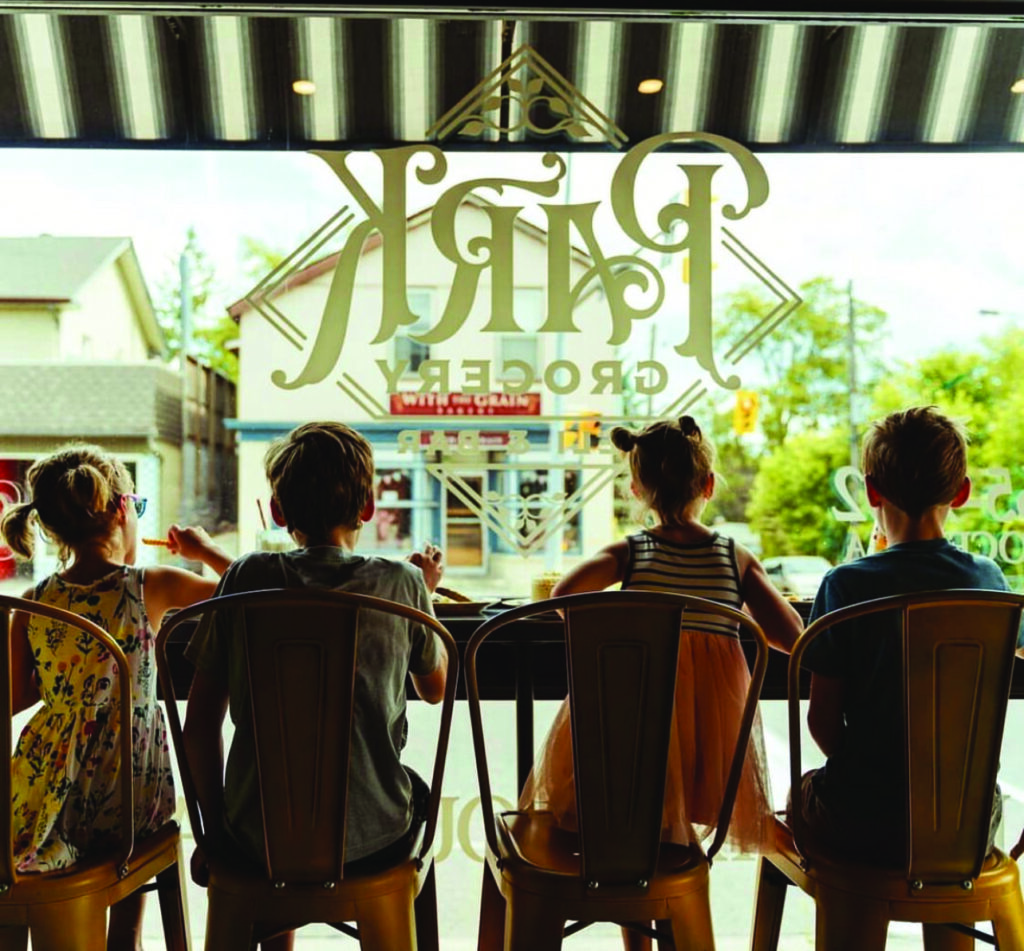
MENU: So, it also became a retention strategy?
CD: Absolutely. It ties into profitability and everything else. But convincing some of our shareholders was tough. In 2011, we weren’t making a lot of money, and focusing on local food made it trickier. Local food wasn’t just about a fancy dinner at Canoe. We wanted it to be an everyday meal.
Convincing shareholders to add health benefits on top of that was a challenge. Some were onboard, others weren’t, so we bought out a couple of shareholders by 2014 to move forward with the program.
MENU: You actually had to restructure to make this happen?
CD: Yeah, we did. Becoming a B Corp meant we had to change our articles of incorporation. Without shareholder agreement, we would never have qualified. So, we made those changes in 2014, launched the health benefit program, and started the certification process in early 2015. By March 2016, we were officially certified, although we had essentially met the requirements by the fall of 2015.
It took about four to five years to complete. It wouldn’t normally take that long, but we had a few challenges to push through.
MENU: Once you were certified, how long did it take to see the benefits internally, in terms of culture?
CD: It took about two years. We really started noticing a shift around 2017. In 2015, we had launched the health benefits and grandfathered in those who were already with us. Initially, we were concerned about the impact on labour costs, but 2015 ended up being our most successful year. It’s hard to say if that was due to becoming a B Corp or the health benefits, but things started aligning. At the same time, we were working on reducing food waste, partnering with the University of Guelph, University of Waterloo, and Wilfred Laurier University on sustainability programs. The cultural shift came as these initiatives started rolling out.
MENU: How did you introduce your values and how they translate to The Neighborhood Group experience to your customers?
CD: At first, we led with sustainability, but it felt elitist—like we were saying we were better than others because we served local food. That didn’t land well. Now, we start with the food—here’s a delicious burger, and by the way, did you know it’s local, hormone- and antibiotic-free? We focus on delivering value and let the emotional connection come after. We also provide more information, like on the back of the menu, where we talk about solar panels, being carbon neutral through an Indigenous offsetting firm, and other sustainability initiatives. But the key is to lead with great food and service.
MENU: Has the adherence to and promotion of your values affected recruitment and retention?
CD: It has been transformational for hiring. Initially, we thought offering health benefits would drastically reduce turnover, but we quickly realized that wasn’t the case for our younger employees. Many were either covered by their parents or school, or they felt indestructible and didn’t see the value in health benefits. So, we reframed our hiring process to ask about values. Do you care about the environment? Do you value health benefits? If those things don’t matter to an applicant, there’s no competitive advantage for us.
We started targeting a more mature workforce—people in their 30s and 40s, or those with families—who valued these benefits. By 2017, our turnover had dropped by almost 50 per cent.
MENU: You’ve been in and out of hospitality throughout your career. What else
influenced your decision to pursue local food and B Corp certification?
CD: When I worked in Australia, it completely shifted my perspective. Over there, local food is just a given. I was working at a restaurant in Brisbane, and I mentioned how amazing it was that they were highlighting local farms. The chef looked at me and said, “Where else would I get all this from?” That moment hit me. In Canada, we pride ourselves on how far we can source ingredients from, which I think is a bit elitist. We import the best from around the world, but in places like Europe and Australia, people take pride in what’s local.
In Australia, I also saw how hospitality professionals—bartenders, servers, chefs—were treated with respect and could build lasting careers. That was something missing here in Canada. When I returned, I took over our family’s pub and helped open Borealis in 2011 with the idea of normalizing local food. It shouldn’t be an elitist concept; it’s better for the environment, the economy, and the community.
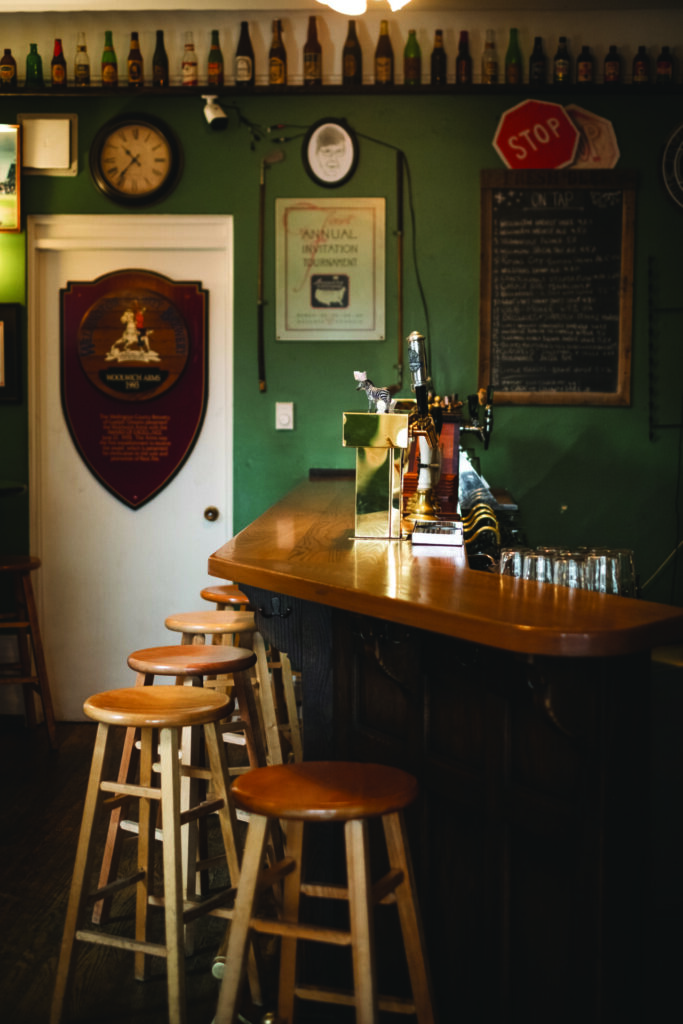
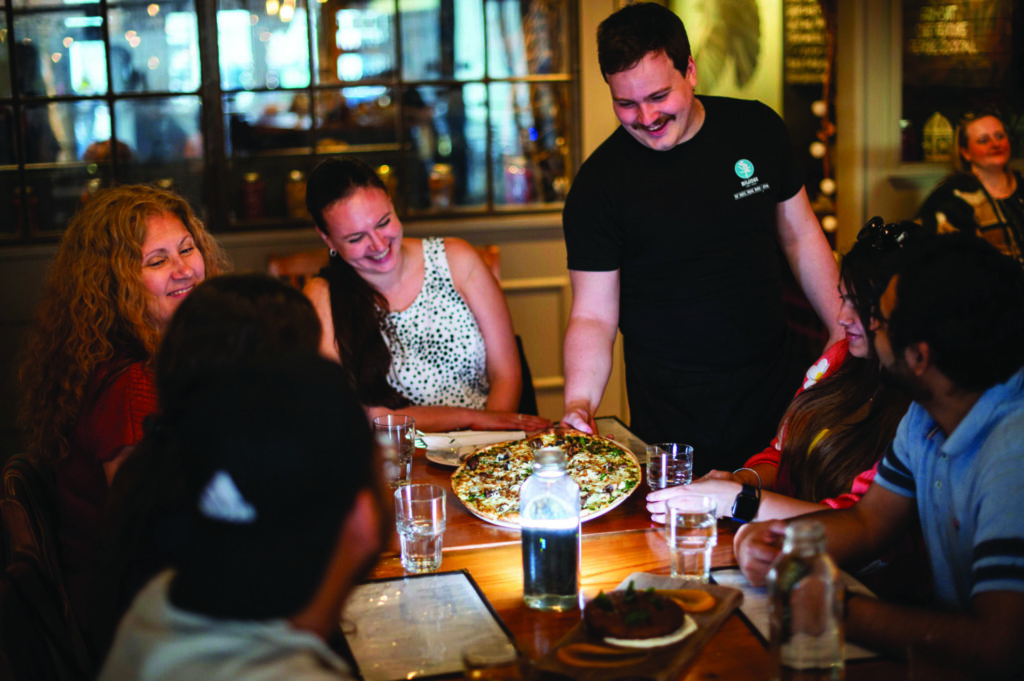
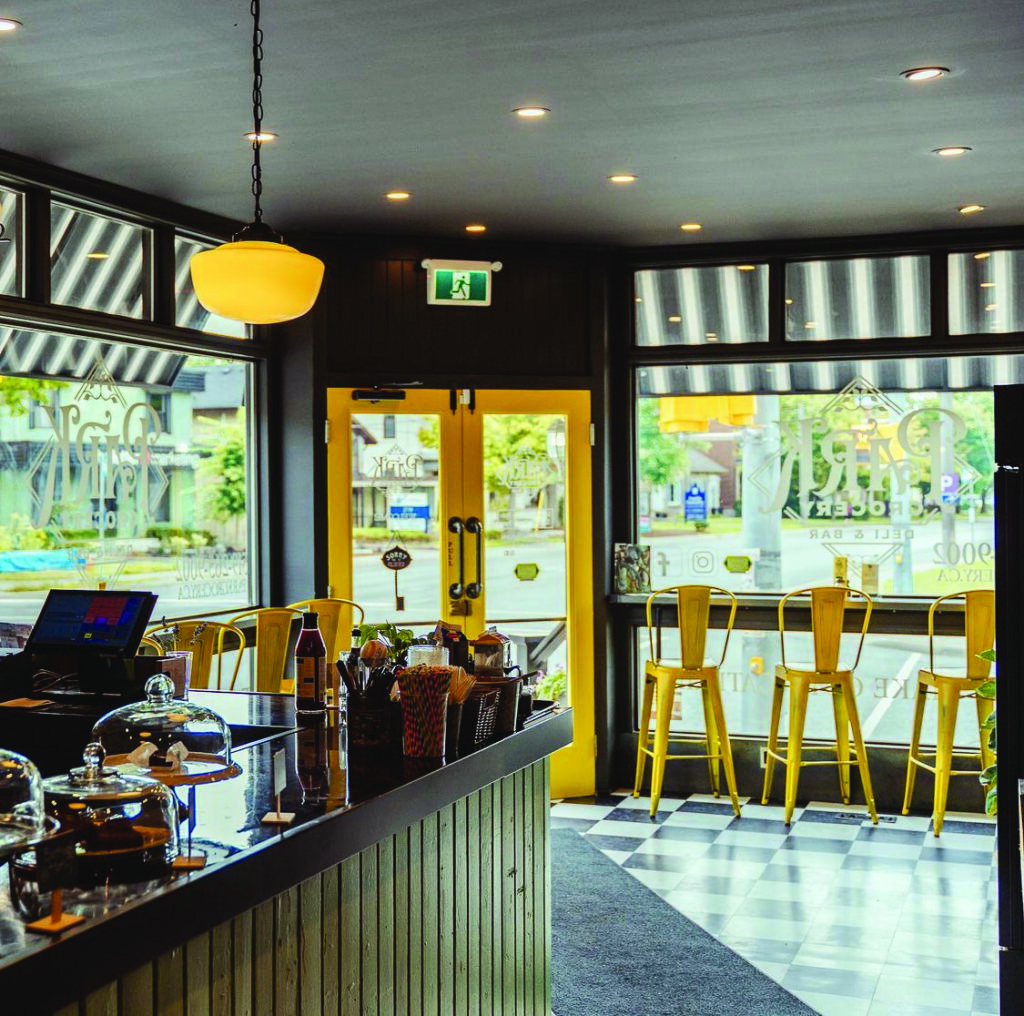
MENU: You’ve implemented big ideas in an industry that’s traditionally struggled. What kind of feedback do you get from your peers in the industry, and do you consider yourself successful?
CD: Success is all about integrity and sticking to your values. Could we be making more money right now? Sure. But margins are tighter than ever, and sometimes we’re just breaking even. That said, our values have never wavered. We’ve built a strong team of people who are motivated by what we’re doing. It’s not about short-term gain, it’s about long-term impact.
Through COVID, we supported our staff, donating all our gift card sales—about $60,000—to help them get through. That’s what helped us recover, stay strong in the community, and build loyalty. To me, that’s success.
MENU: Has sticking to those values kept your business together during tough times?
CD: One hundred per cent. It’s the only reason we’re still here. It’s also what keeps our team motivated. Running a restaurant is tough, but because we’ve done the hard work of building this culture, the day-to-day obstacles don’t seem as daunting.
There’s definitely stress—people are burnt out—but the work we’re doing, like supporting local farms and Indigenous communities, or promoting sustainability, keeps them going. Interestingly, because we’ve stuck with key local partners, our food costs haven’t risen as much as others’. In fact, our costs have decreased in some cases, because we’ve built stronger relationships with our local suppliers.
MENU: Do you think this approach will pay off in the long run?
CD: Absolutely. People are more intentional with their spending now, and there’s a shift towards supporting local businesses that align with their values. COVID interrupted that momentum, but I see it coming back. Consumers want transparency, they’re more curious than ever, and they’re asking the right questions—whether it’s about local food or sustainability.
We’re seeing this shift not just from individuals, but from corporations too. For example, during COVID, a local Mazda dealership donated $5,000 to support our community outreach program. That was completely unsolicited. More and more corporations are interested in supporting businesses that align with their own sustainability and community initiatives. It’s refreshing to see, and it reinforces that sticking to our values—despite how tough it’s been—was the right decision. Consumers and corporations are both starting to prioritize value over just cost, and that’s creating a stronger, more resilient local economy.
Follow The Neighbourhood Group restaurants:
IG: @thewoolypub
IG: @borealis_grille
IG: @miijidaa
IG: @park.eatery



